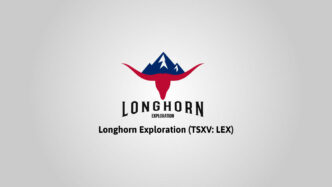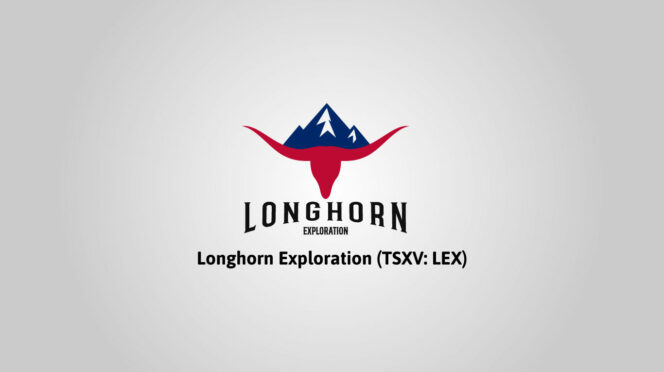Alaska Energy Metals Corporation (AEMC) announced a partnership with the Colorado School of Mines and Virginia Tech to study the carbon sequestration potential of ultramafic rocks at its Eureka Deposit in Alaska. This innovative research, supported by an ARPA-E grant, aims to determine how carbon dioxide can be sequestered through the carbonation of mine tailings. The project will involve analyzing the mineral composition and reaction capabilities of the rocks over 20 years. AEMC emphasizes that this endeavor supports sustainable domestic mining while contributing to national security and environmental goals, potentially providing critical materials for energy needs.
—————————
VANCOUVER, British Columbia, Sept. 18, 2024 (GLOBE NEWSWIRE) — With its continuing focus on sustainable domestic mining, Alaska Energy Metals Corporation (TSX-V: AEMC, OTCQB: AKEMF) (“Alaska Energy Metals”, “AEMC” or the “Company”) is pleased to announce its partnership with the Colorado School of Mines (“Mines”) and Virgina Polytechnic Institute (“VT”) to research the carbon sequestration potential of ultramafic rocks and tailings at its 100% owned Eureka Deposit, Alaska. The innovative research will be conducted by a team of experts from Mines and VT who have been awarded an Advanced Research Projects Agency – Energy (ARPA-E) grant to study the carbonation potential of ore deposit waste streams. The research will be performed under the umbrella of the Center to Advance the Science of Exploration to Reclamation in Mining (CASERM), a premier joint research center between Mines and VT, supported in part by the United States National Science Foundation and the United States Geological Survey.
Colorado School of Mines Professor of Economic Geology Dr. Thomas Monecke commented: “We are extremely excited to engage in this partnership with Alaska Energy Metals on a real-life project that will potentially provide a secure domestic source of energy-related metals while simultaneously sequester carbon to slow global warming. As a premier research mining university, we are focused on producing talent, knowledge, and innovations to serve the industry and benefit society at large, all to create a more prosperous future. Every step leaves a footprint, and this pilot project will allow us to move one step further in the right direction.”
Alaska Energy Metals President & CEO Gregory Beischer commented: “US domestic mining is essential for both the electrical energy expansion and for US national security. For these reasons, we have intentionally begun to study and assess the use of modern technological innovations like ultramafic mine tailings carbonation at the early stages of the development phase of our project.”
Ultramafic rocks, rich in magnesium, spontaneously react with carbon dioxide (“CO2”) in the atmosphere. Finely ground rock tailings, as a waste product of major mining operations, may effectively sequester carbon at a large scale through a natural carbonation reaction. This pilot project will determine the carbonation potential of the ultramafic rocks and potential future tailings at AEMC’s Eureka deposit. Determination of the average mineralogical composition of the ore zones will be studied using a combination of whole-rock geochemical and petrographic data. Quantification of minerals reacting with CO2 is critical as the carbonation potential of the rocks will strongly depend on the relative proportions of magnesium-rich minerals (i.e. olivine, pyroxene, anorthite, brucite, etc.), as well as their mineral chemistry. Once the average mineralogical composition and mineral chemistry of phases of interest is determined, the data will be used for reactive transport modeling. The modeling will show how much CO2 can be sequestered into a ton of tailings, assuming that key characteristics such as grain size and surface area of the particles are known.
The research is expected to deliver the following outcomes:
1. Normative mineralogical data calculated from whole-rock geochemical information with tabulated normative data that can be easily plotted down hole or used in 3D modeling.
2. Block modeling to constrain the average mineralogical composition of the mineralized zone. The obtained average mineralogy will closely correspond to the composition of potential future tailings.
3. Carbonation modeling of tailings over a simulation time of 20 years while receiving an equilibrium supply of CO2 (i.e., open system). In this manner, the amount of CO2 to be sequestered will be calculated for each year, resulting in a time-dependent assessment of carbonation potential. This will allow for a robust estimate of the benefits of implementing negative carbon technology at the Eureka Deposit.
QUALIFIED PERSON
Gabriel Graf, the Company’s Chief Geoscientist, is the qualified person who reviewed and approved the technical disclosure in this news release.
For additional information, visit: https://alaskaenergymetals.com/
ABOUT CASERM
The Center to Advance the Science of Exploration to Reclamation in Mining (CASERM) represents a collaborative venture between Colorado School of Mines and Virginia Tech aimed at transforming the way that geoscience data are used in the mineral resource industry. Research focuses on the integration of diverse geoscience data to improve decision-making across the mine life cycle, beginning with the exploration for subsurface earth resources and continuing through mine operation as well as closure and environmental remediation. CASERM also addresses the critical need for training and preparation of graduates and young professionals by educating the next generation of scientists and engineers working in the mining sector.
ABOUT ALASKA ENERGY METALS
Alaska Energy Metals Corporation (AEMC) is an Alaska-based corporation with offices in Anchorage and Vancouver working to sustainably deliver the critical materials needed for national security and a bright energy future, while generating superior returns for shareholders.
AEMC is focused on delineating and developing the large-scale, bulk tonnage, polymetallic Eureka deposit containing nickel, copper, cobalt, chromium, iron, platinum, palladium, and gold. Located in Interior Alaska near existing transportation and power infrastructure, its flagship project, Nikolai, is well-situated to become a significant domestic source of strategic energy-related metals for North America. AEMC also holds a secondary project, ‘Angliers-Belleterre,’ in western Quebec. Today, material sourcing demands excellence in environmental performance, carbon mitigation and the responsible management of human and financial capital. AEMC works every day to earn and maintain the respect and confidence of the public and believes that ESG performance is measured by action and led from the top.
ON BEHALF OF THE BOARD
“Gregory Beischer”
Gregory Beischer, President & CEO
FOR FURTHER INFORMATION, PLEASE CONTACT:
Gregory A. Beischer, President & CEO
Toll-Free: 877-217-8978 | Local: 604-638-3164
Sarah Mawji, Public Relations
Venture Strategies
Email: sarah@venturestrategies.com
Some statements in this news release may contain forward-looking information (within the meaning of Canadian securities legislation) including the intent to calculate the carbon sequestration potential of rock tailings from the Eureka deposit in Alaska. These statements address future events and conditions and, as such, involve known and unknown risks, uncertainties, and other factors which may cause the actual results, performance, or achievements to be materially different from any future results, performance, or achievements expressed or implied by the statements. Forward-looking statements speak only as of the date those statements are made. Although the Company believes the expectations expressed in such forward-looking statements are based on reasonable assumptions, such statements are not guaranteeing of future performance and actual results may differ materially from those in the forward-looking statements. Factors that could cause the actual results to differ materially from those in forward-looking statements include regulatory actions, market prices, and continued availability of capital and financing, and general economic, market or business conditions. Investors are cautioned that any such statements are not guarantees of future performance and actual results or developments may differ materially from those projected in the forward-looking statements. Forward-looking statements are based on the beliefs, estimates and opinions of the Company’s management on the date the statements are made. Except as required by applicable law, the Company assumes no obligation to update or to publicly announce the results of any change to any forward-looking statement contained or incorporated by reference herein to reflect actual results, future events or developments, changes in assumptions, or changes in other factors affecting the forward-looking statements. If the Company updates any forward-looking statement(s), no inference should be drawn that it will make additional updates with respect to those or other forward-looking statements.
Neither the TSX Venture Exchange nor its Regulation Services Provider (as that term is defined in the policies of the TSX Venture Exchange) accepts responsibility for the adequacy or accuracy of this press release.



